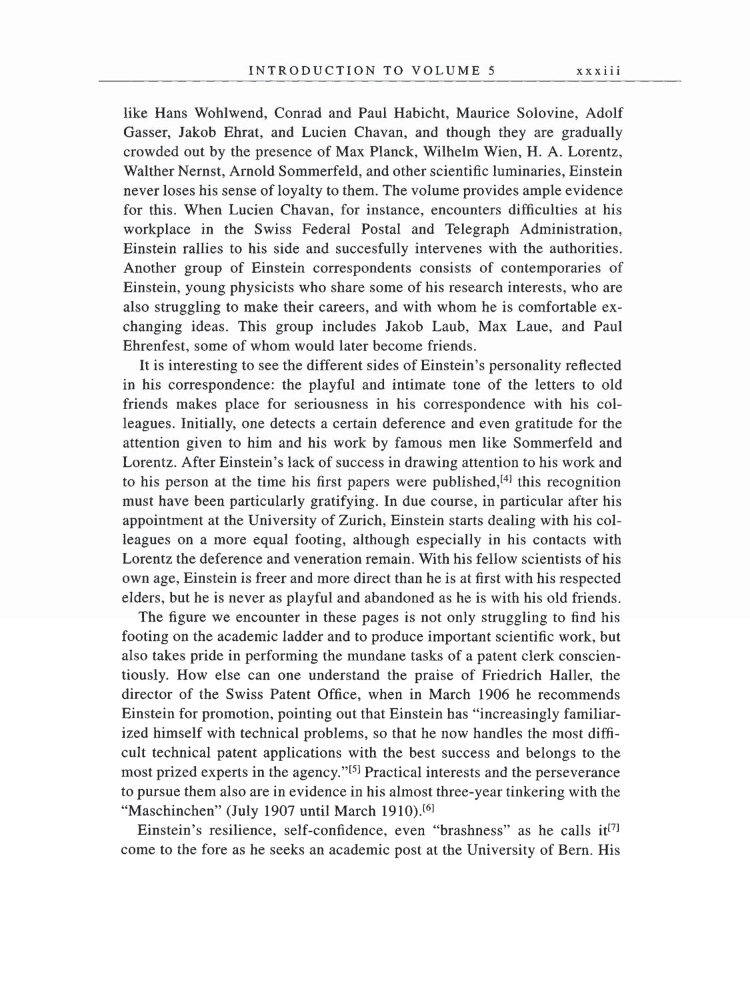INTRODUCTION TO VOLUME 5 xxxiii like Hans Wohlwend, Conrad and Paul Habicht, Maurice Solovine, Adolf Gasser, Jakob Ehrat, and Lucien Chavan, and though they are gradually crowded out by the presence of Max Planck, Wilhelm Wien, H. A. Lorentz, Waither Nernst, Arnold Sommerfeld, and other scientific luminaries, Einstein never loses his sense of loyalty to them. The volume provides ample evidence for this. When Lucien Chavan, for instance, encounters difficulties at his workplace in the Swiss Federal Postal and Telegraph Administration, Einstein rallies to his side and succesfully intervenes with the authorities. Another group of Einstein correspondents consists of contemporaries of Einstein, young physicists who share some of his research interests, who are also struggling to make their careers, and with whom he is comfortable ex- changing ideas. This group includes Jakob Laub, Max Laue, and Paul Ehrenfest, some of whom would later become friends. It is interesting to see the different sides of Einstein's personality reflected in his correspondence: the playful and intimate tone of the letters to old friends makes place for seriousness in his correspondence with his col- leagues. Initially, one detects a certain deference and even gratitude for the attention given to him and his work by famous men like Sommerfeld and Lorentz. After Einstein's lack of success in drawing attention to his work and to his person at the time his first papers were published,[4] this recognition must have been particularly gratifying. In due course, in particular after his appointment at the University of Zurich, Einstein starts dealing with his col- leagues on a more equal footing, although especially in his contacts with Lorentz the deference and veneration remain. With his fellow scientists of his own age, Einstein is freer and more direct than he is at first with his respected elders, but he is never as playful and abandoned as he is with his old friends. The figure we encounter in these pages is not only struggling to find his footing on the academic ladder and to produce important scientific work, but also takes pride in performing the mundane tasks of a patent clerk conscien- tiously. How else can one understand the praise of Friedrich Haller, the director of the Swiss Patent Office, when in March 1906 he recommends Einstein for promotion, pointing out that Einstein has "increasingly familiar- ized himself with technical problems, so that he now handles the most diffi- cult technical patent applications with the best success and belongs to the most prized experts in the agency."[5] Practical interests and the perseverance to pursue them also are in evidence in his almost three-year tinkering with the "Maschinchen" (July 1907 until March 1910).[6] Einstein's resilience, self-confidence, even "brashness" as he calls it[7] come to the fore as he seeks an academic post at the University of Bern. His
